Water fountains are a popular choice for adding a touch of elegance and tranquillity to any space. Among the various designs available, lion water fountains have gained popularity in recent years. These majestic animals have been a symbol of power and strength for centuries. But beyond their physical representation, there is a deeper meaning behind the design of lion water fountains.
The symbolism of different lion water fountain designs, including the postures of the lion from a peaceful and calming posture or a more dynamic and assertive one, as well as the materials used and the incorporation of other elements, can hold deep meaning.

The Symbolism of Lions
Lions are often depicted in a variety of different cultural and artistic contexts, and they hold a range of symbolic meanings. Understanding the symbolism of lions can help you choose a water fountain that fits with the overall theme and aesthetic of your garden.
In many cultures, lions are seen as symbols of strength, power, and leadership. They are often associated with royalty and are seen as the king of the jungle. In this sense, a lion water fountain can be a good choice for those who want to create a sense of power and strength in their garden.
Lions are also often seen as symbols of courage and bravery. They are known for their fierce nature and their ability to protect and defend their territory. In this sense, a lion water fountain can be a good choice for those who want to create a sense of courage and protection in their garden.
Lions are also often seen as symbols of wisdom and intelligence. They are known for their keen senses and their ability to make strategic decisions. In this sense, a lion water fountain can be a good choice for those who want to create a sense of wisdom and intelligence in their garden.
In ancient Egypt, lions were seen as a symbol of the sun and were associated with royalty and power
The lion held a significant position in ancient Egyptian culture and was widely considered as a symbol of the sun. In Egyptian mythology, the goddess Sekhmet was portrayed as a lioness, representing the destructive force of the sun. The pharaohs of ancient Egypt were often associated with the lion due to its powerful and majestic characteristics, which represented their status as rulers. They were also believed to have a connection to the divine realm and were considered to be the descendants of the gods.
The sphinx, a mythical creature with a lion's body and a human head, was also a prominent symbol in ancient Egyptian culture. It was often placed at the entrance of temples and pyramids to guard the sacred spaces and protect them from evil spirits. The Great Sphinx of Giza, one of the most famous monuments in the world, is an iconic example of this symbolism and was built during the reign of Pharaoh Khafre.
Moreover, the lion was often depicted on various artifacts and statues in ancient Egypt, including sarcophagi, jewelry, and tomb paintings. These representations were intended to evoke the power and strength of the lion, which was believed to protect the dead on their journey to the afterlife.
The lion is one of the twelve zodiac signs in Chinese culture and represents strength, courage, and nobility
In Chinese culture, the lion is a powerful and revered animal and holds a significant place in their zodiac. It is one of the twelve zodiac signs and represents strength, courage, and nobility. The Chinese lion is different from the African lion and is depicted with a more mythical and stylized appearance. It is often shown with a curly mane, a large head, and a powerful body, symbolizing its strength and dominance.
The lion's significance in Chinese culture can be traced back to ancient times. According to Chinese mythology, the lion was believed to have the power to drive away evil spirits and protect people from harm. It was often depicted in traditional Chinese art and was used as a symbol of power and protection.
In Chinese astrology, people born in the year of the lion are believed to possess the animal's characteristics of courage, strength, and nobility. They are known for their bravery, determination, and leadership qualities. Those born under this sign are often seen as natural leaders who inspire and motivate others to follow their lead.
In traditional Chinese lion dance performances, the lion is often depicted as a playful and mischievous creature, bringing good luck and fortune to those around it. The dance is performed during Chinese New Year and other important cultural festivals and is believed to ward off evil spirits and bring prosperity to the community.
In Hinduism, the lion is a symbol of power and courage and is associated with various deities
The lion is an important symbol in Hinduism and holds a significant place in the religion's mythology and iconography. In Hinduism, the lion is associated with power, courage, and strength, and is often used as a symbol for various deities.
One of the most well-known deities associated with the lion in Hinduism is Goddess Durga. She is often depicted riding a lion and is considered to be the embodiment of female power and strength. The lion is a symbol of the goddess's bravery, courage, and ability to overcome obstacles.
Similarly, the god Narasimha, who is an incarnation of Lord Vishnu, is also associated with the lion in Hindu mythology. He is often depicted with a lion's head and a human body, symbolizing his power and ferocity. The image of Narasimha represents the triumph of good over evil and is seen as a symbol of protection and strength.
The lion is also associated with the goddess Ambika, who is often depicted with a lion or tiger as her vehicle. She is considered to be a fierce and powerful goddess, capable of protecting her devotees from harm.
In addition to its association with deities, the lion is also a symbol of the sun in Hinduism. It is believed that the lion represents the sun's power and vitality, and is often depicted on flags and banners during Hindu festivals and ceremonies.
Lion water fountains represent the strength and power of lions, as well as the nobility and royalty they represent
Lion water fountains are a popular design element that can be found in many different settings, including parks, public spaces, and private gardens. These features are typically designed to incorporate the image of a lion, which is a powerful and majestic animal that has been revered in many cultures throughout history. The lion's symbolism in lion water fountains is closely tied to the strength and power of the animal, as well as the nobility and royalty it represents.
One of the primary reasons why lions are used in water fountains is their association with strength and power. Lions are known for their physical strength and courage, making them a popular symbol for those who wish to convey a sense of power and strength. By incorporating the image of a lion into a water fountain, designers can create a powerful and impressive focal point that commands attention and respect.
Lion water fountains are also associated with the nobility and royalty that lions represent. In many cultures, lions have been associated with royalty and have been used as a symbol of power and prestige. By using a lion in a water fountain, designers can convey a sense of elegance and sophistication, which is often associated with royalty and nobility.
The use of water in lion water fountains is also significant. Water is often associated with life and vitality, and can represent the cleansing and purifying qualities of nature. When combined with the image of a lion, the water can create a powerful and dynamic effect that is both visually striking and emotionally resonant.
The sound of water flowing through a lion water fountain is believed to bring good luck and positive energy to a space
Water has been considered a symbol of good fortune and positive energy in many cultures throughout history. In the context of lion water fountains, the sound of water flowing through the feature is believed to bring good luck and positive energy to a space. This belief is based on the ancient principles of feng shui, an ancient Chinese art of placement that aims to create a harmonious environment by balancing the flow of energy, or qi.
According to feng shui principles, the sound of flowing water represents the flow of energy, which brings positive benefits to the space. The sound of water is believed to have a calming effect, reducing stress and promoting relaxation. This can create a more peaceful and harmonious environment, which is conducive to productivity and creativity.
In addition to its calming effect, the sound of water in a lion water fountain is also believed to activate positive energy in the space. The flowing water is thought to promote the flow of positive energy, which can help to attract good luck, prosperity, and abundance. This can be especially beneficial in a home or office environment, where positive energy can help to promote success and happiness.
The lion itself is also considered to be a powerful symbol of strength and protection. When combined with the sound of water, a lion water fountain can create a powerful combination of positive energy and protection. This can help to create a sense of security and well-being in the space, which can be beneficial for both physical and mental health.
Placing lion water fountains in the North, East or Southeast direction can help activate the flow of positive energy according to Feng Shui
According to the principles of feng shui, the placement of objects in a space can greatly affect the flow of energy, or qi. When it comes to lion water fountains, the direction in which they are placed is believed to play an important role in their ability to activate positive energy in a space.
Feng shui experts recommend placing lion water fountains in the North, East, or Southeast direction to help activate the flow of positive energy in a space. These directions are believed to be associated with different elements, which can affect the flow of energy in a space. For example, the North is associated with the element of water, which is believed to represent wealth and abundance. Placing a lion water fountain in the North can help to activate the flow of positive energy associated with this element, which can help to attract prosperity and abundance to the space.
The East direction is associated with the element of wood, which is believed to represent growth and vitality. Placing a lion water fountain in the East can help to activate the flow of positive energy associated with this element, which can help to promote growth, creativity, and productivity in the space.
The Southeast direction is associated with the element of fire, which is believed to represent passion and energy. Placing a lion water fountain in the Southeast can help to activate the flow of positive energy associated with this element, which can help to promote passion, creativity, and energy in the space.
In addition to these specific directions, feng shui experts also recommend placing lion water fountains in areas where they can be easily seen and enjoyed. This can help to maximize the benefits of the feature and promote positive energy throughout the space.
The Meaning of Different Lion Postures
Lions are often depicted in a variety of different postures in water fountains, each of which can hold different meanings and symbolism. Understanding the different lion postures can help you choose a water fountain that fits with the overall theme and aesthetic of your garden.
Sitting: A lion sitting in a relaxed posture can represent peace, contentment, and balance. This posture is often seen as more peaceful and calming and can be a good choice for those who want to create a sense of serenity in their garden.
Roaring: A lion roaring can represent power, strength, and leadership. This posture is often seen as more dynamic and assertive and can be a good choice for those who want to create a sense of drama and energy in their garden.
Laying down: A lion laying down in a relaxed posture can represent rest, relaxation, and rejuvenation. This posture is often seen as more peaceful and calming and can be a good choice for those who want to create a sense of serenity and rest in their garden.
Standing: A lion standing in a proud and upright posture can represent confidence, strength, and leadership. This posture is often seen as more powerful and assertive and can be a good choice for those who want to create a sense of strength and pride in their garden.
Different lion postures can hold different meanings and symbolism, and the right posture for your water fountain will depend on your personal style and the overall theme and aesthetic of your garden. By understanding the different lion postures and their meanings, you can choose a water fountain that fits with your personal style and the overall theme of your garden.
Materials and Other Elements
Besides the posture of the lion, the materials used in a lion water fountain and the incorporation of other elements can also hold meaning and symbolism. Choosing the right materials and other elements can help to create a cohesive and meaningful water fountain that fits with the overall aesthetic and theme of your garden.
Materials:
The materials used in a lion water fountain can have a big impact on the overall feel and look of the feature. Some common materials used in lion water fountains include stone, ceramic, metal, and resin. Each of these materials has its own unique properties and can bring a different look and feel to the water fountain.
Stone: Stone lion water fountains are often seen as more traditional and classic. They can bring a sense of timelessness and durability to the water fountain. Stone is a natural material that can blend in well with a garden setting and can be a good choice for those who want a more natural or rustic look.
Ceramic: Ceramic lion water fountains are often seen as more modern and contemporary. They can bring a playful and lighthearted feel to the water fountain. Ceramic is a versatile material that can be molded into a variety of shapes and sizes, making it a good choice for those who want a more customized look.
Metal: Metal lion water fountains can bring a sense of strength and durability to the water fountain. Metal is a strong and long-lasting material that can withstand the elements and is a good choice for those who want a more industrial or modern look.
Resin: Resin lion water fountains are often seen as more lightweight and versatile. They can bring a sense of stillnwss and creativity to the water fountain. Resin is a synthetic material that can be molded into a variety of shapes and sizes and is a good choice for those who want a more customized or creative look.
Other Elements:
Besides the materials used in a lion water fountain, the incorporation of other elements can also add to the overall meaning and aesthetic of the water fountain. Some common elements that can be incorporated into a lion water fountain include plants, waterfalls, streams, and lighting.
Plants: Adding plants to a lion water fountain can bring a sense of peace and serenity to the space. Different plants can have different meanings and symbolism, so choosing plants that fit with the overall theme and aesthetic of your garden can help to create a cohesive and meaningful water fountain. Some plants that might work well with a lion water fountain include bamboo, lotus flowers, and water lilies.
Waterfalls: The inclusion of a waterfall or stream in a lion water fountain can add a sense of movement and energy to the space. Waterfalls can create a soothing sound and can also help to oxygenate the water, making it more healthy for plants and animals.
Lighting: Adding lighting to a lion water fountain can create a sense of drama and ambiance. Different lighting options, such as LED lights or candles, can create different moods and effects. For example, LED lights might create a more modern and vibrant look, while candles might create a more romantic and intimate atmosphere.
Incorporating other elements into a lion water fountain can help to create a cohesive and meaningful space that reflects your personal style and interests. By choosing the right materials and other elements, you can create a water fountain that is perfect for your garden and that brings joy and serenity to your outdoor space.
Frequently Asked Questions
Can lion water fountains be used indoors?
A: Yes, lion water fountains can be used indoors, but it is important to ensure that the space can accommodate the size and weight of the feature and that it is properly installed.
How do I maintain a lion water fountain?
The maintenance requirements for a lion water fountain will depend on the specific feature and its materials. However, some general maintenance tips include keeping the water clean and free of debris, regularly checking the pump and other mechanical components, and protecting the feature from extreme weather conditions. It's also important to follow any manufacturer guidelines for maintenance and upkeep.
Can lion water fountains be used in any space?
Lion water fountains can be used in a variety of spaces, including homes, offices, public spaces, and outdoor areas. However, it's important to consider the size and scale of the feature in relation to the space, as well as any potential safety concerns if the feature will be accessible to the public.
What are some things to consider when choosing a lion water fountain?
When choosing a lion water fountain, it's important to consider the size and scale of the feature in relation to the space it will be placed in. It's also important to consider the style and material of the feature, as well as any maintenance requirements. Additionally, it's important to choose a location that will maximize the benefits of the feature and create a harmonious environment.
Final Thoughts
Lion water fountains are a popular and striking addition to any garden, and they can add a touch of drama, strength, and power to your outdoor space. The symbolism of different lion water fountain designs, including the postures of the lion, as well as the materials used and the incorporation of other elements, can hold deep meaning and help to create a cohesive and meaningful garden space.
By understanding the symbolism and meaning behind different lion water fountain designs, you can choose a water fountain that is perfect for your garden and personal style, and create a beautiful and enriching outdoor space. Whether you prefer a more peaceful and calming lion posture, or a more dynamic and assertive one, there is a lion water fountain to suit every style and theme.
Shop our Lion Water Features
Related Articles
Water fountain Design Ideas for 2023
Water fountain Ideas For Australia
Buddha Water Fountains: Decoding the Symbolism & Meaning


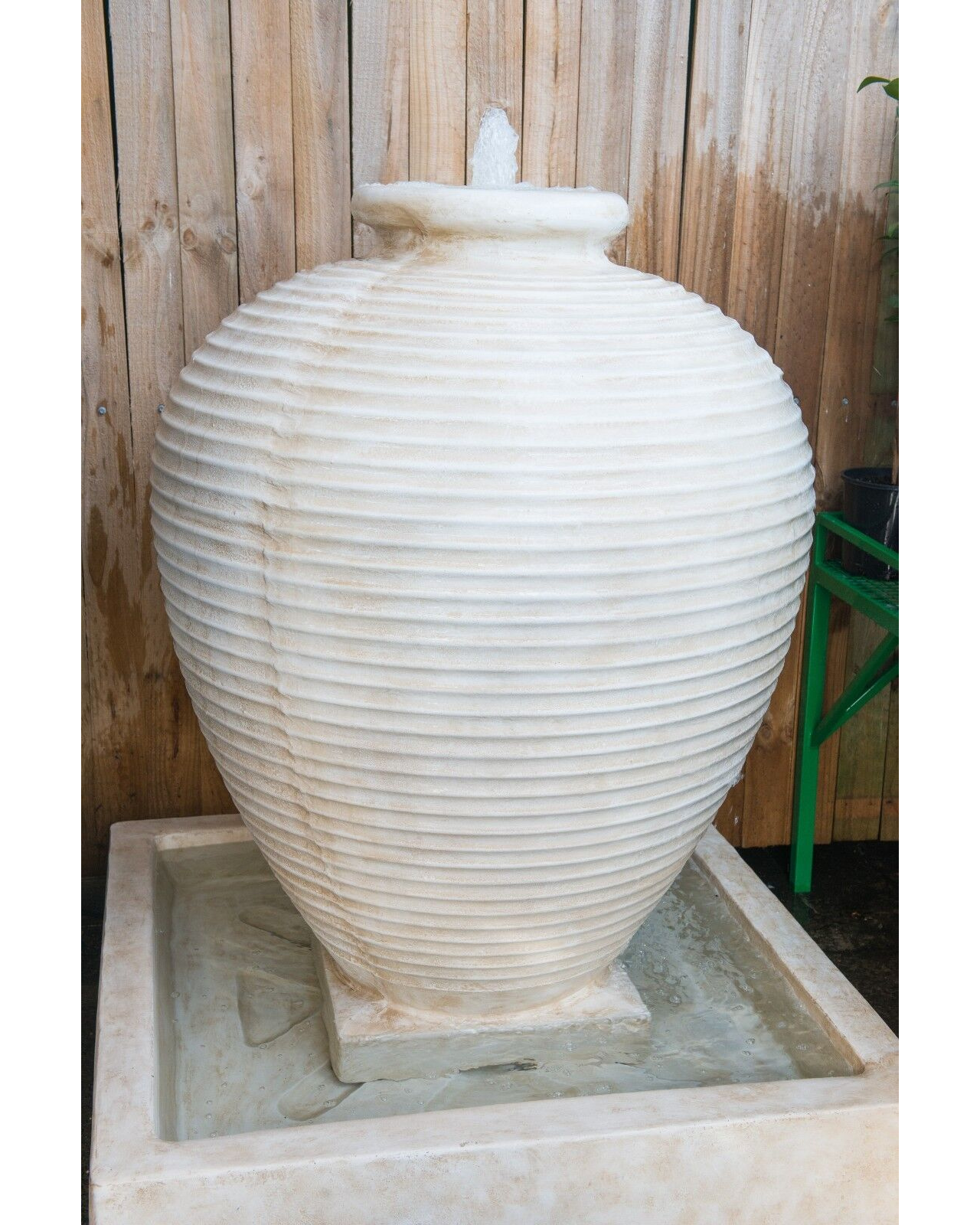
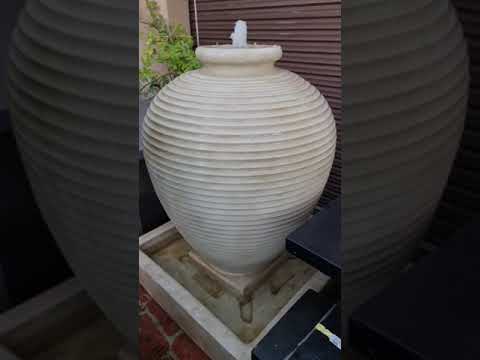
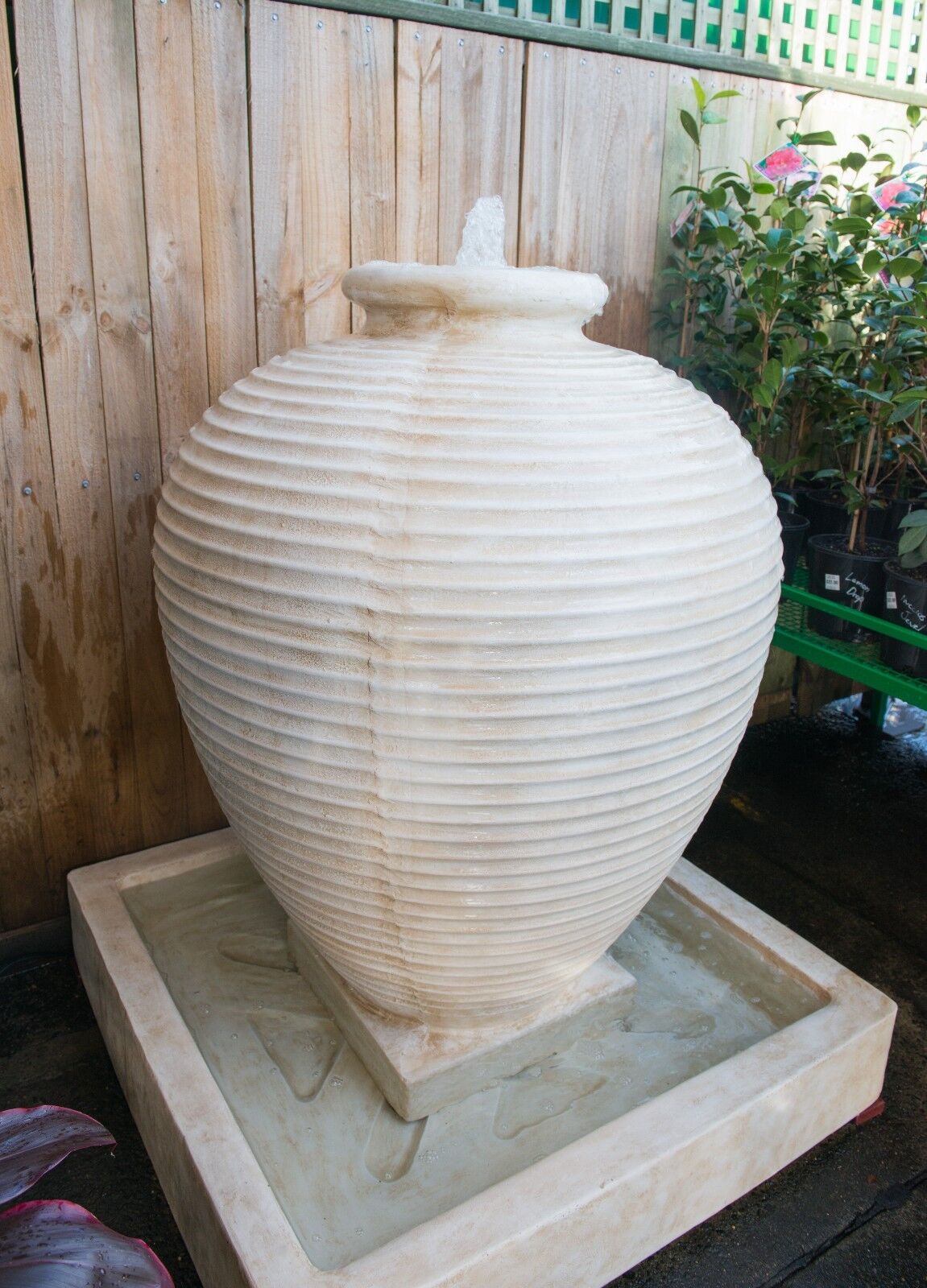
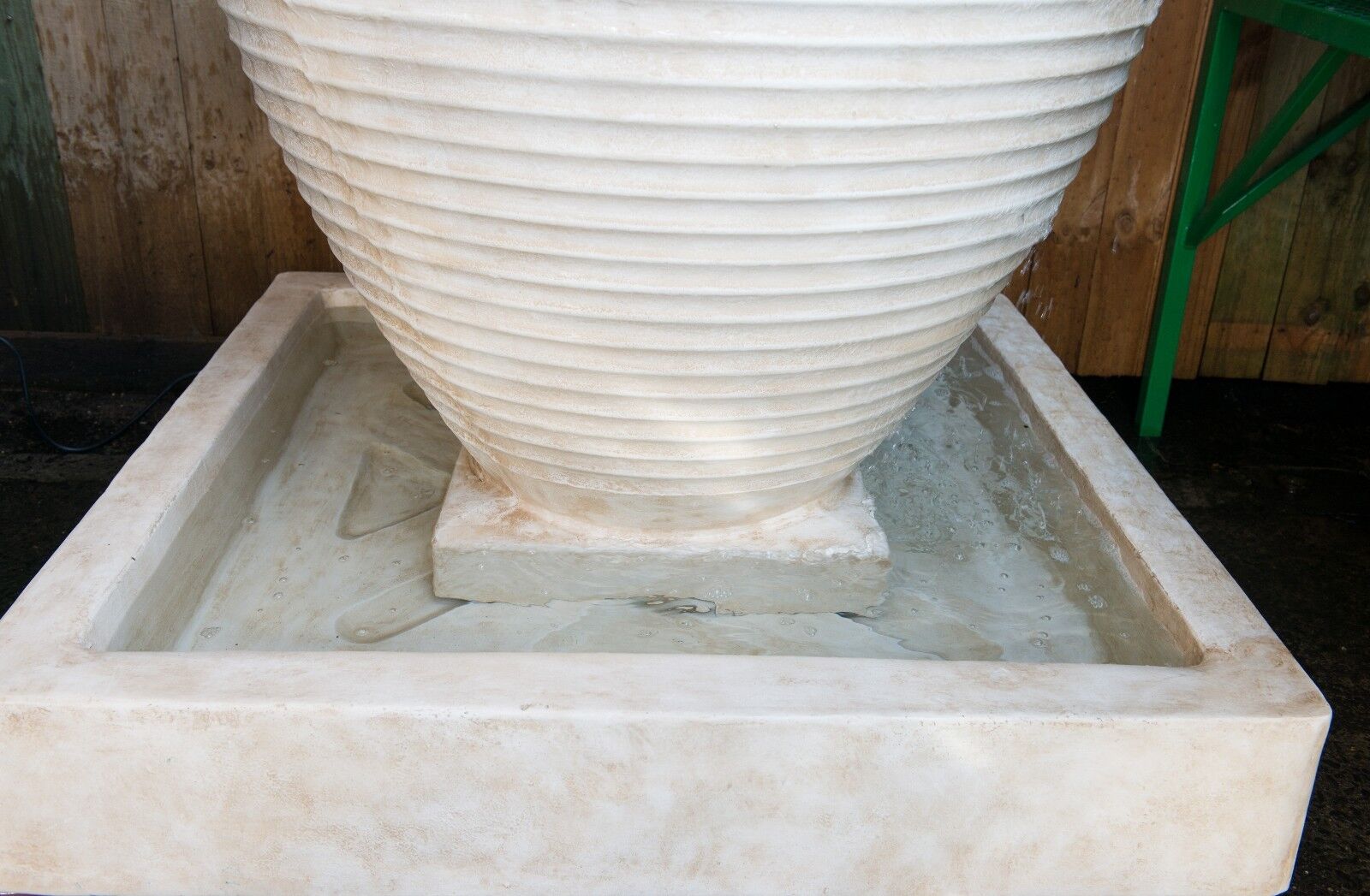
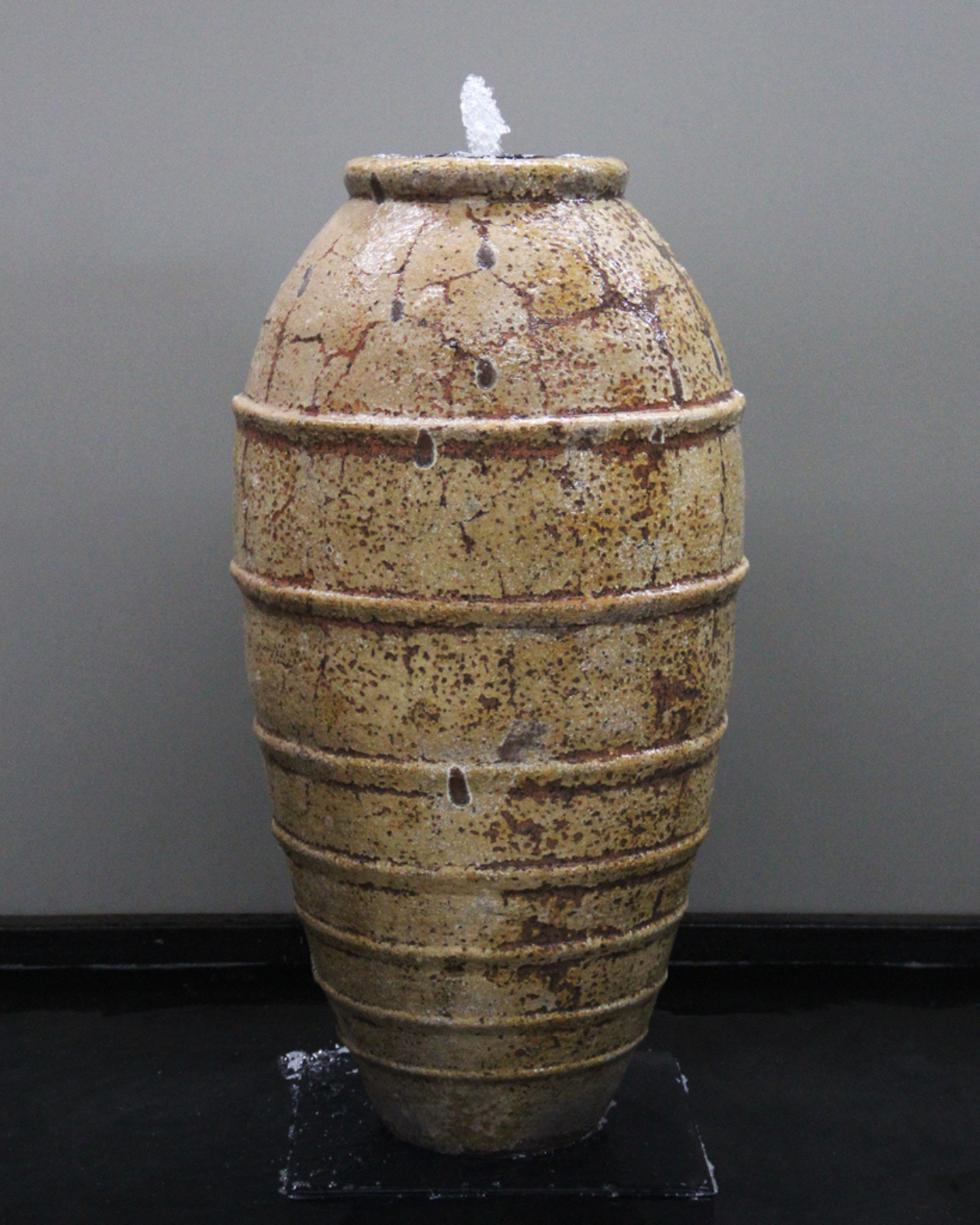

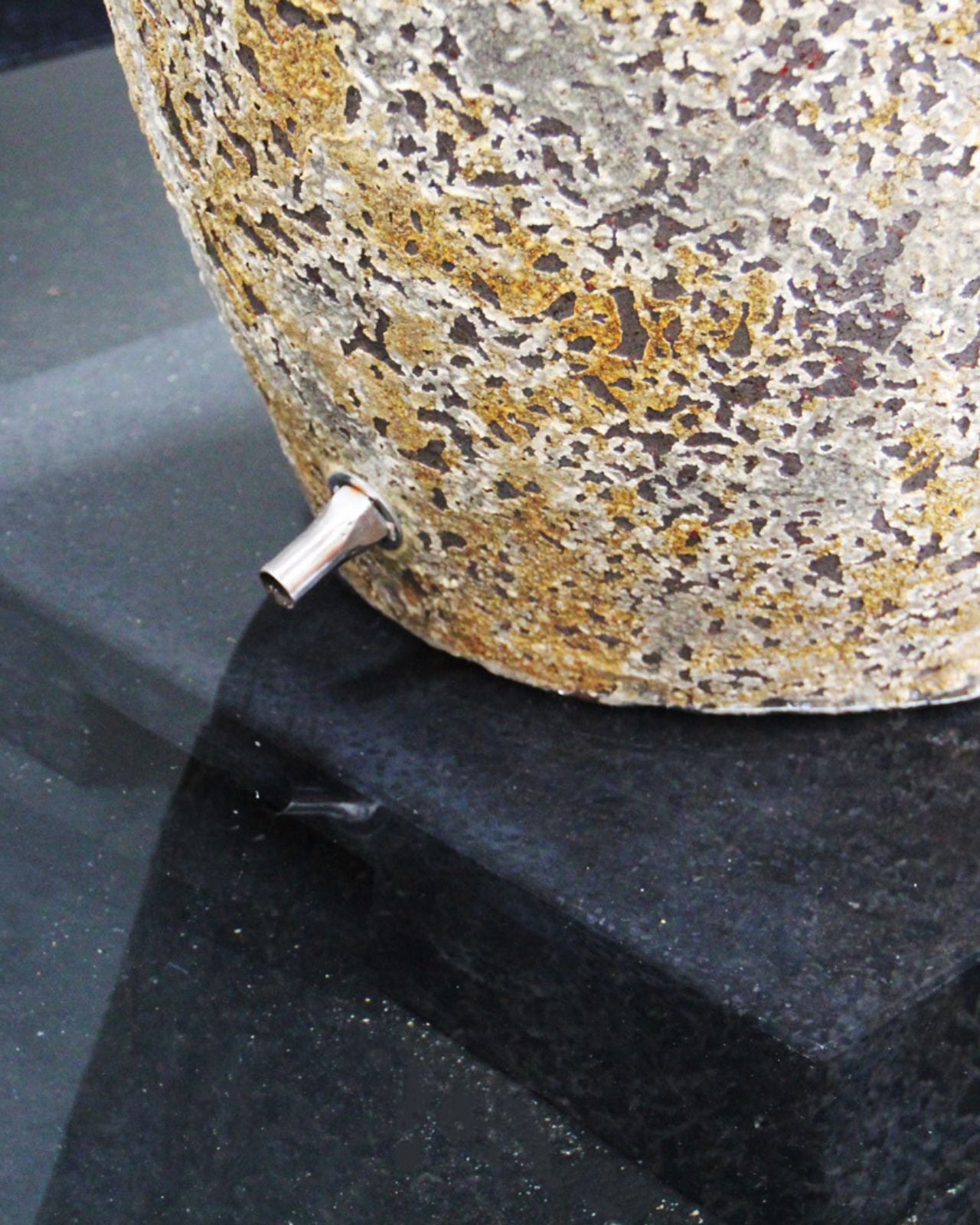
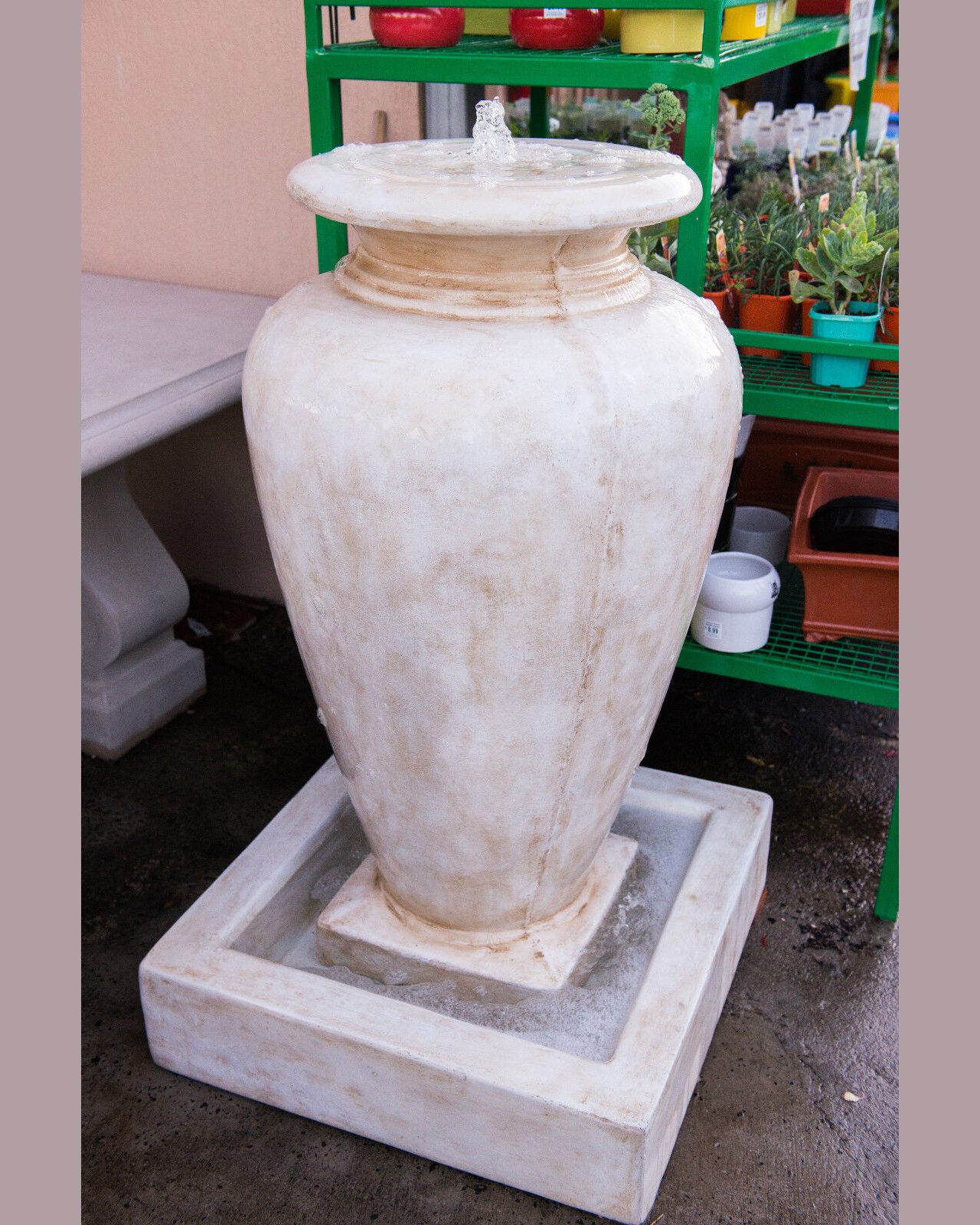
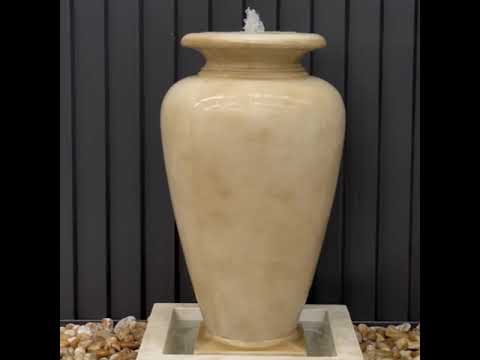
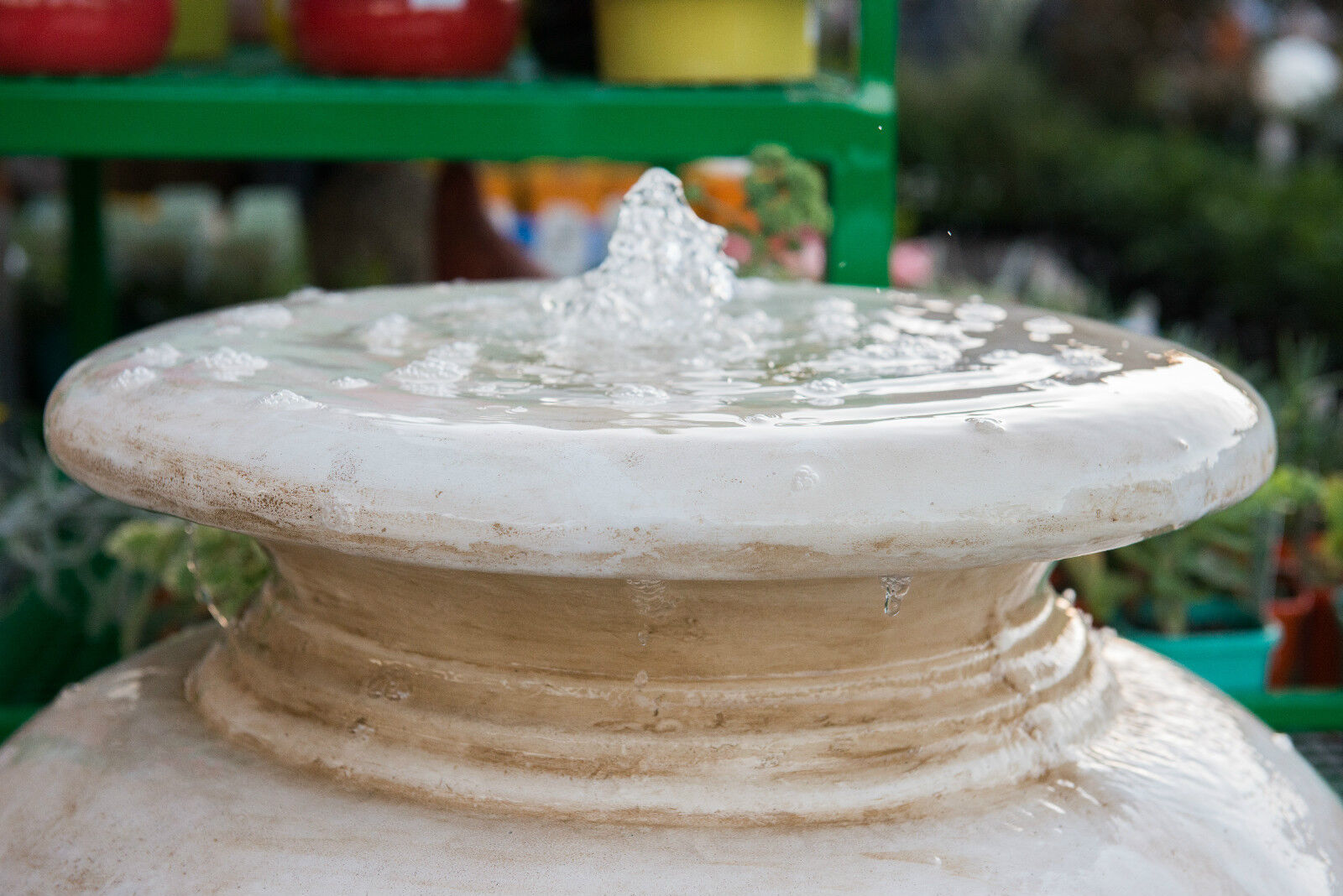
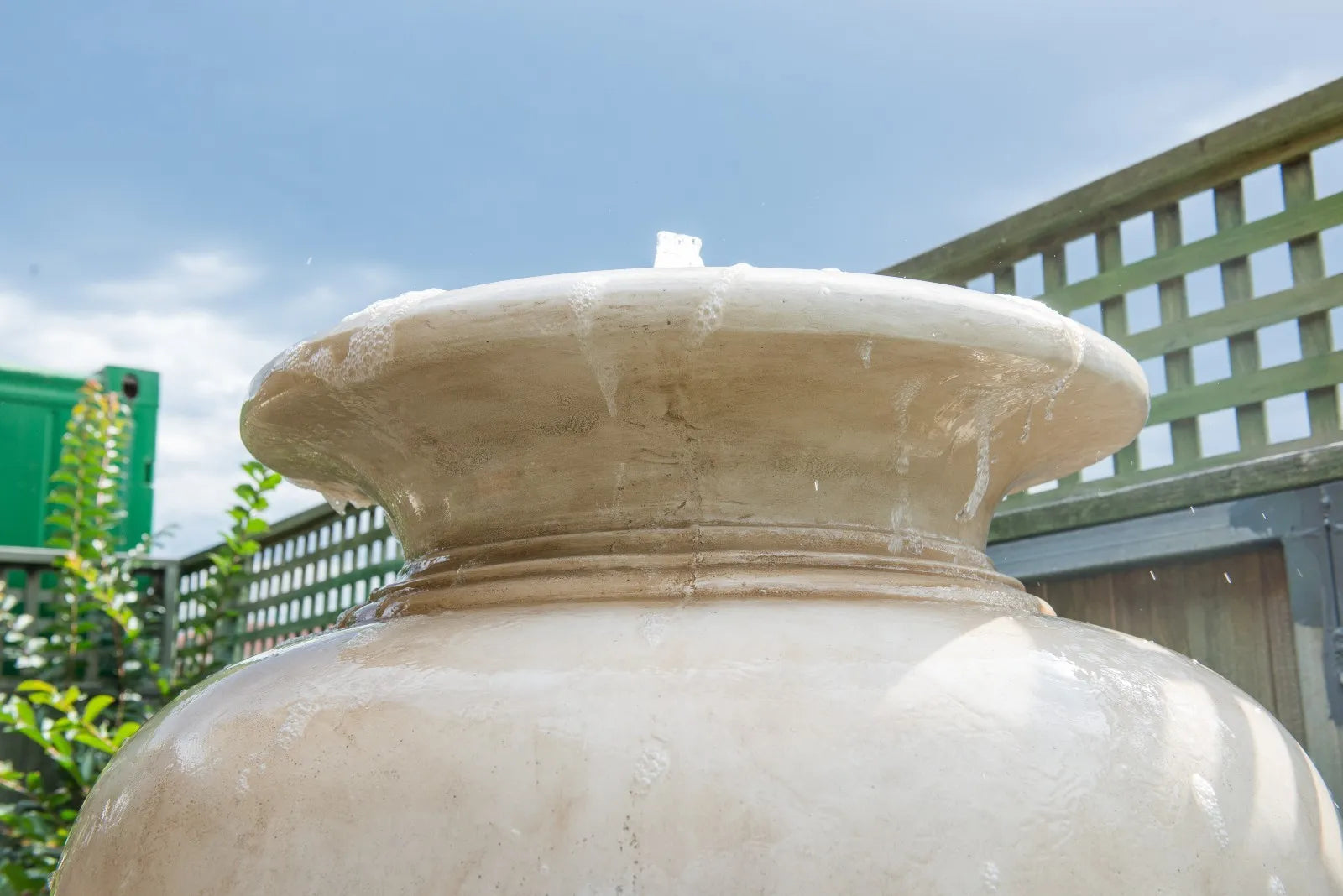
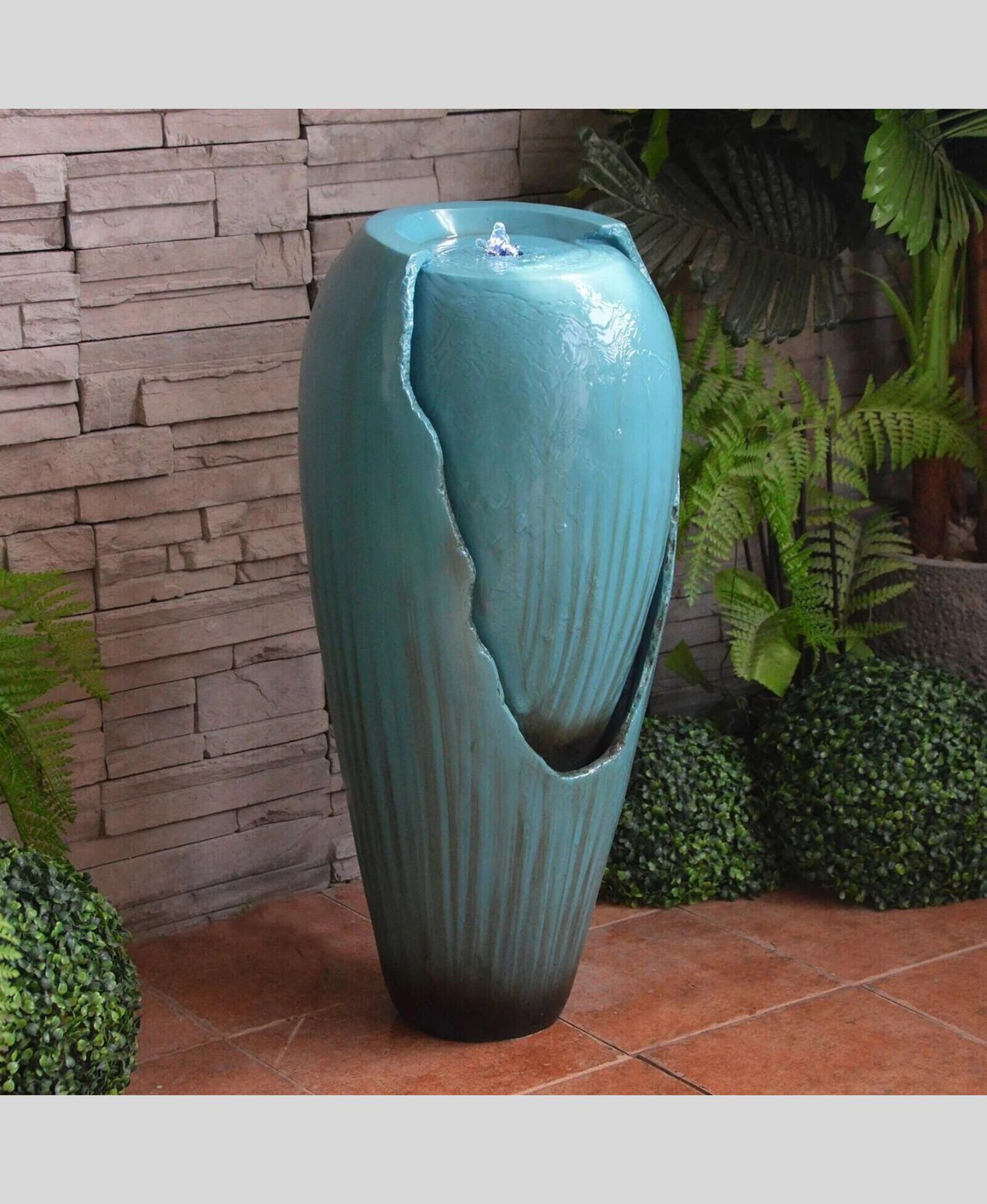
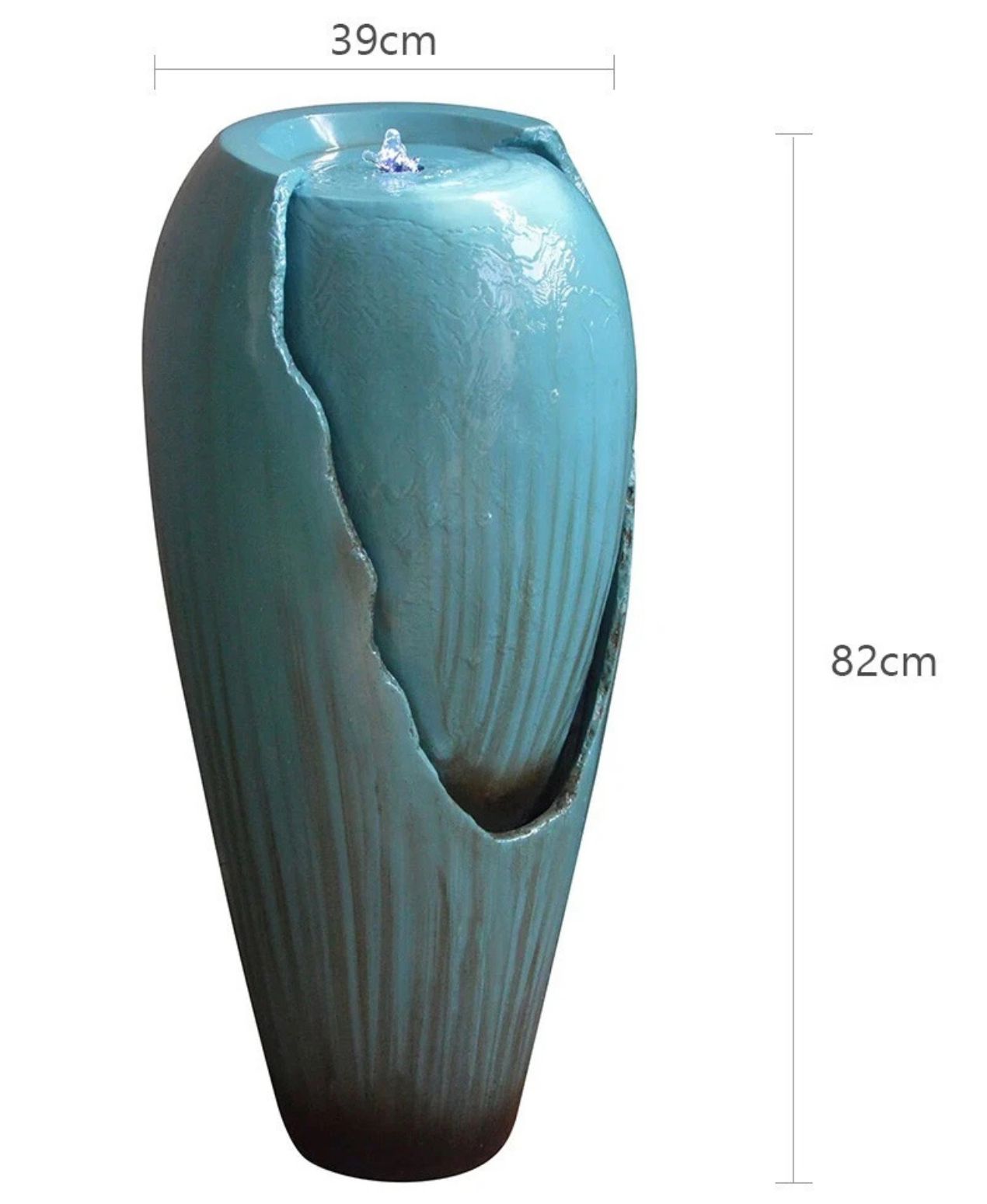
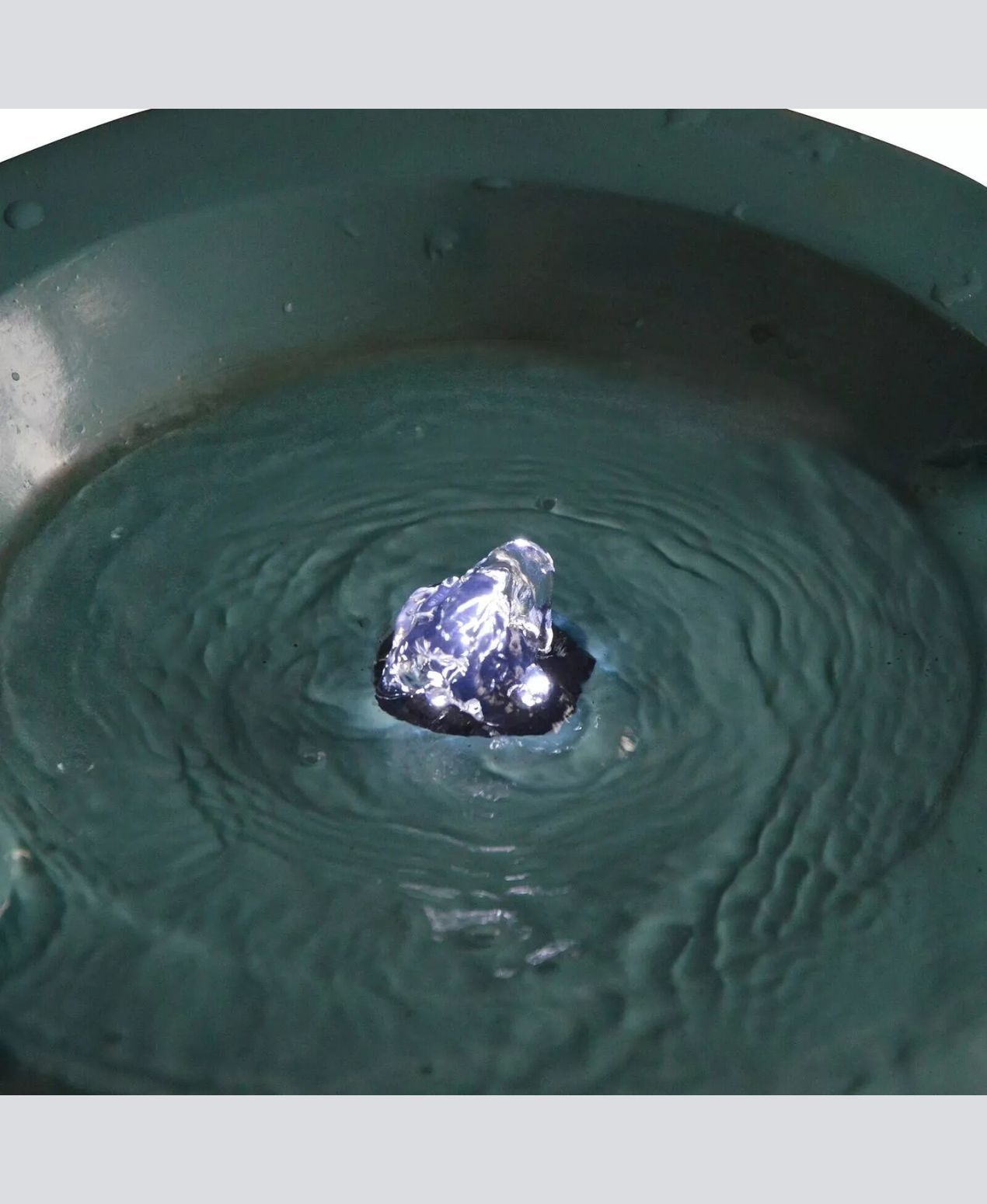

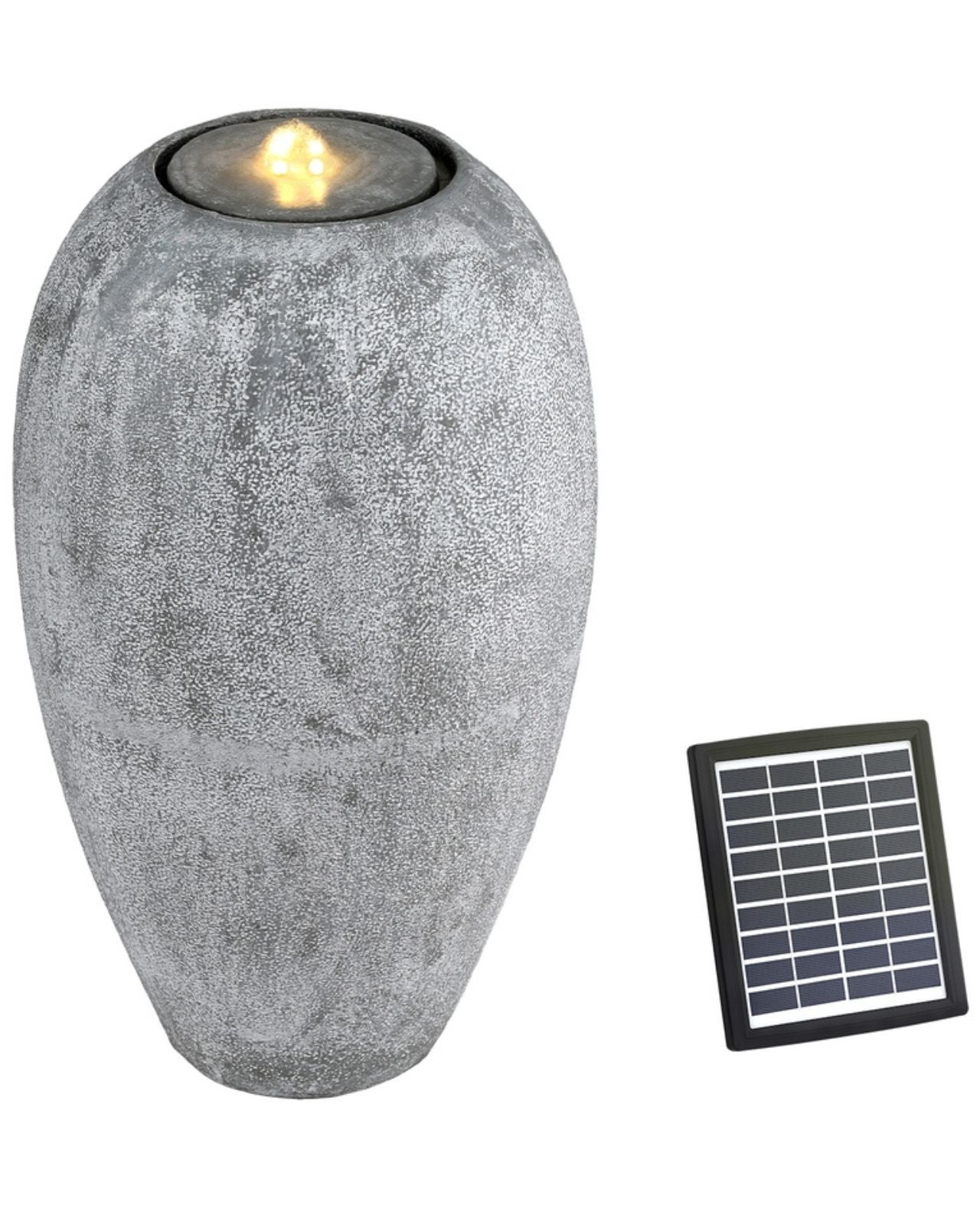
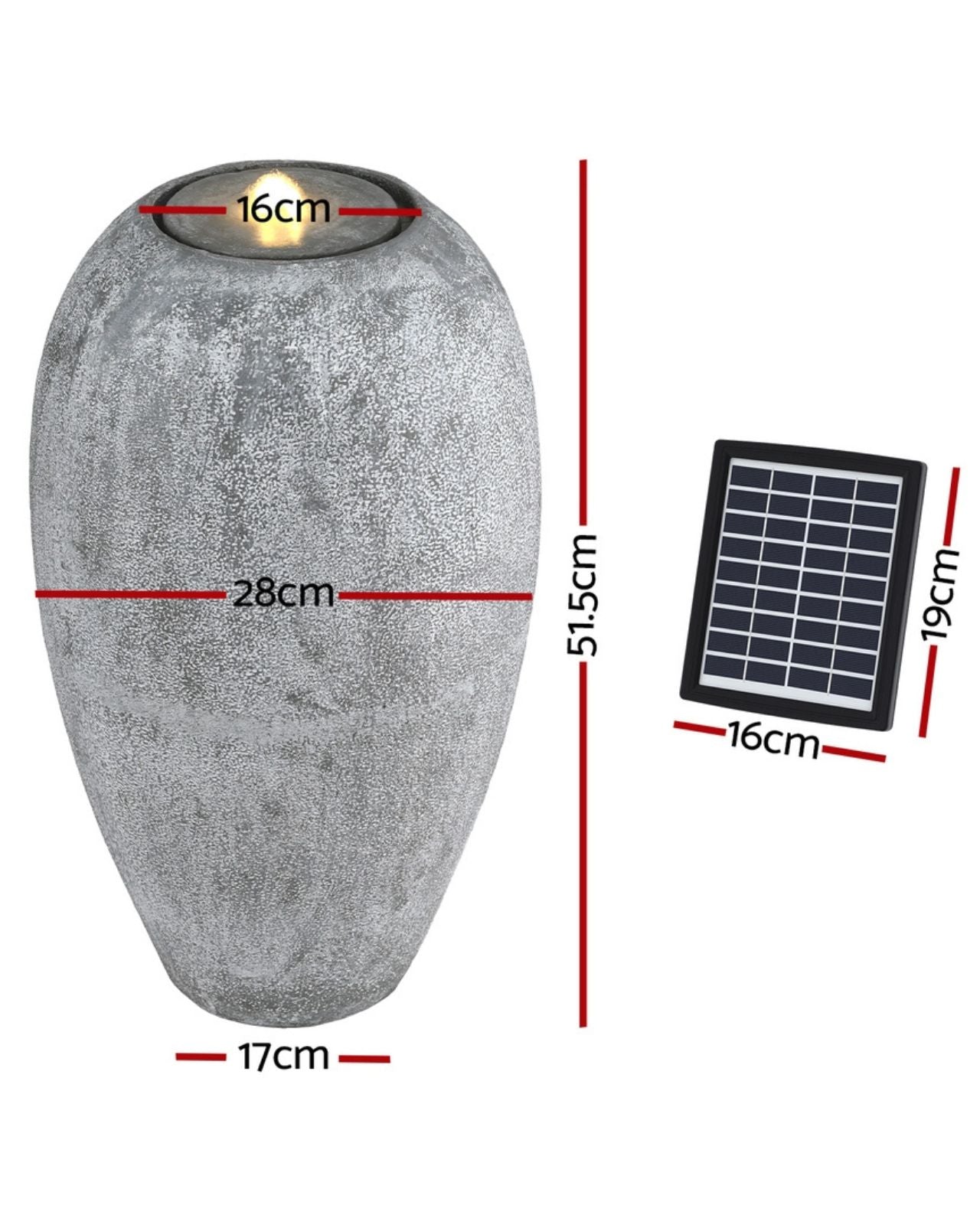

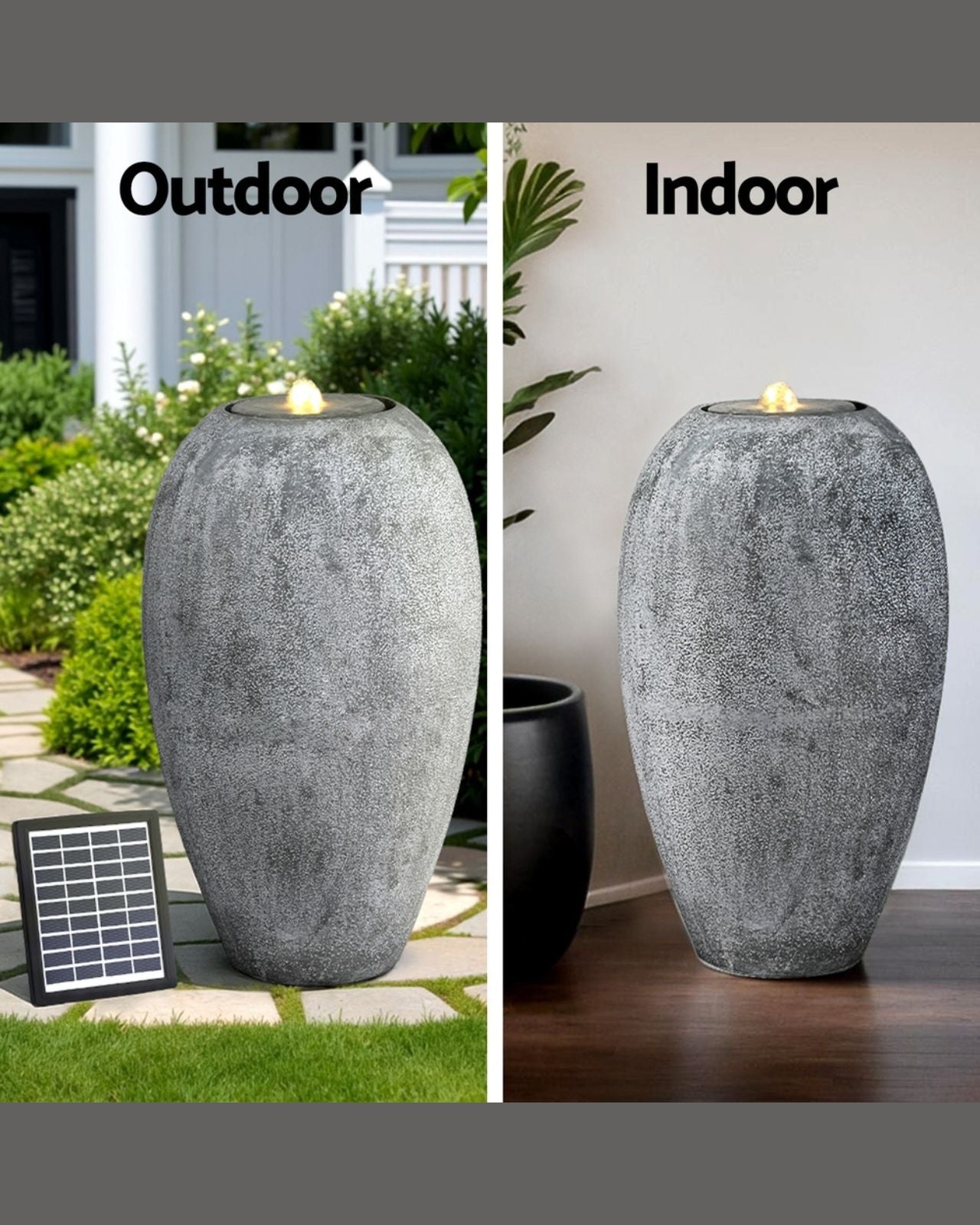
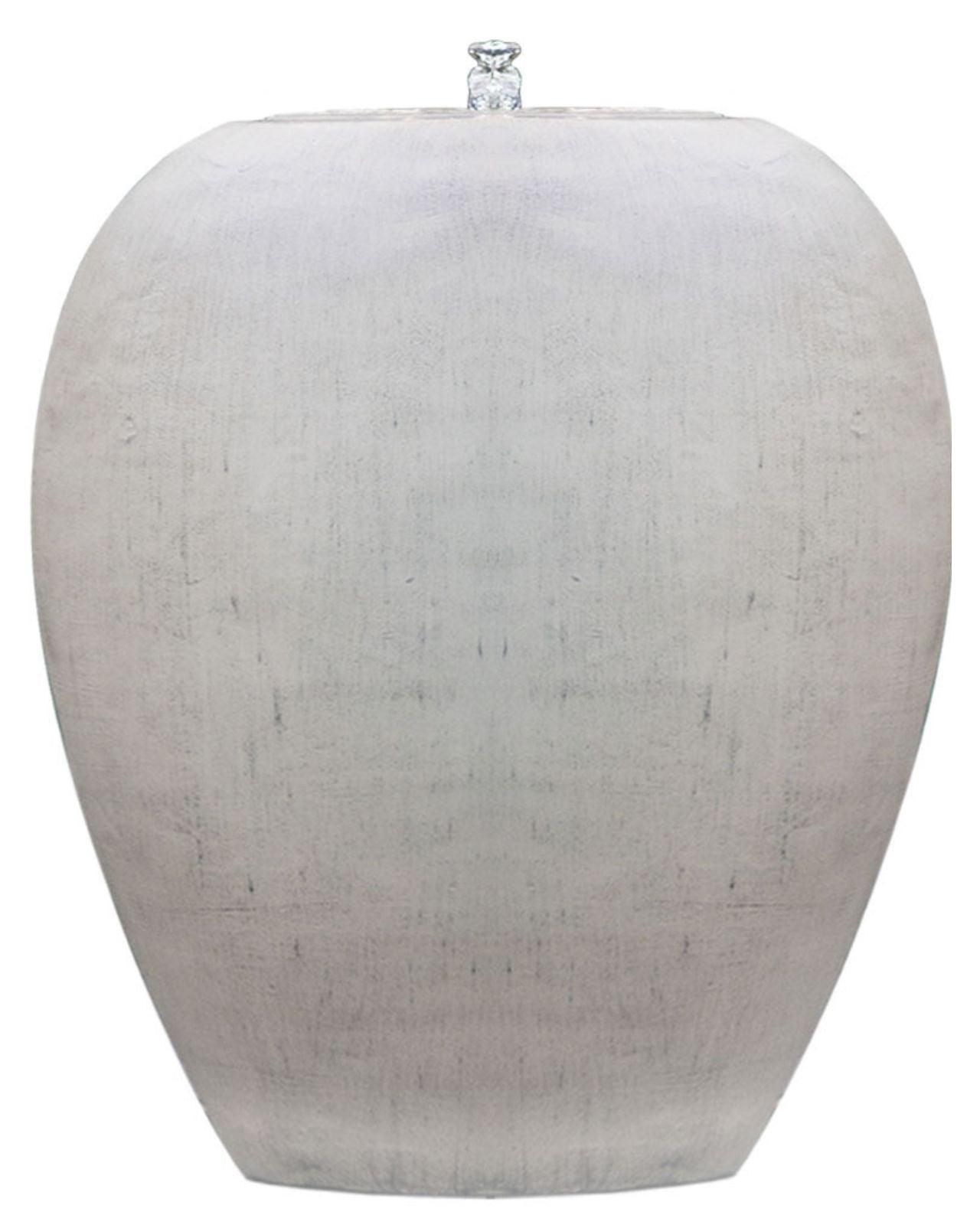

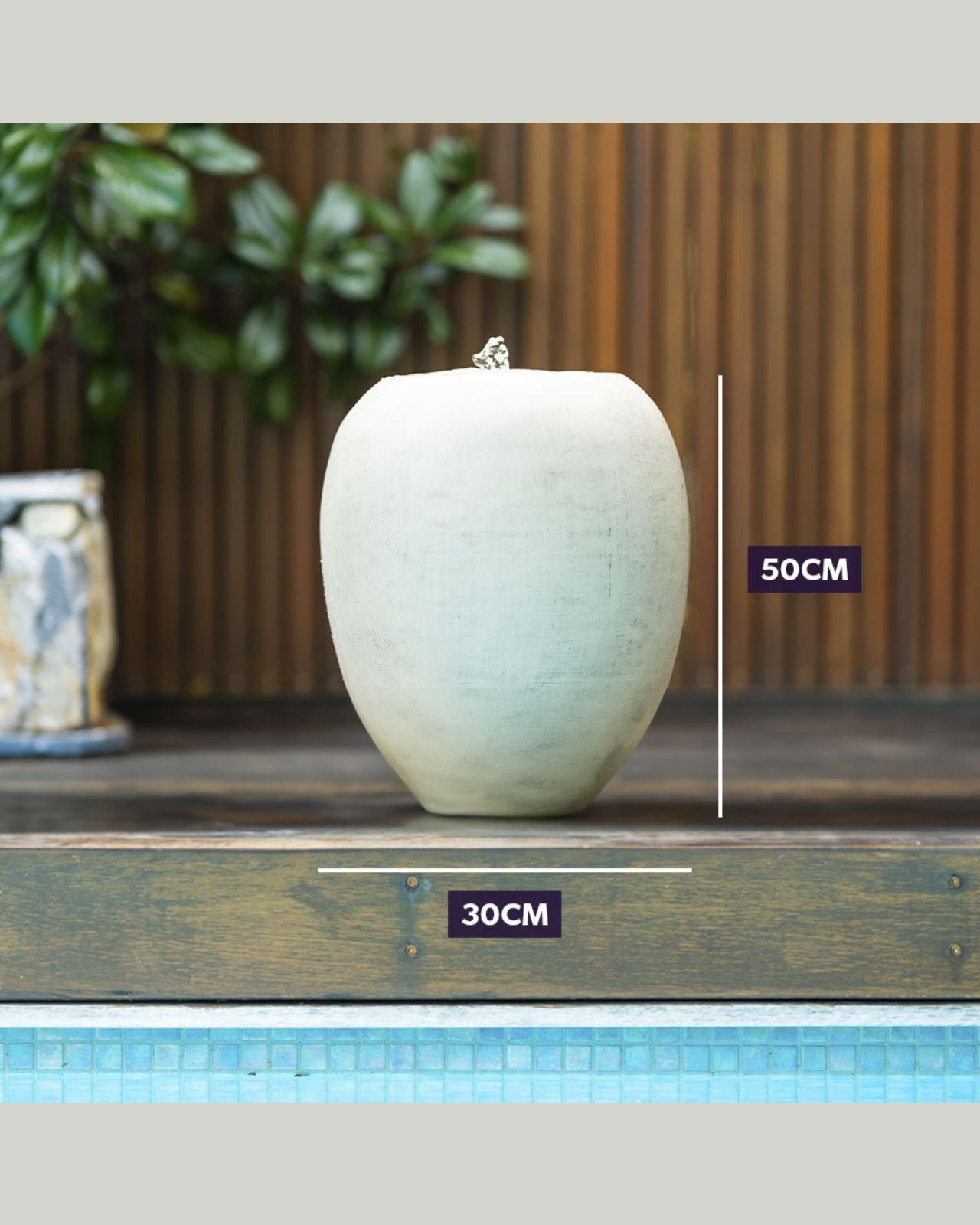

Share:
Ganesha Water Fountains: Decoding the Symbolism & Meaning
Buddha Water Fountains: Decoding the Symbolism & Meaning